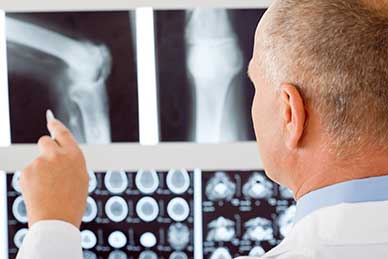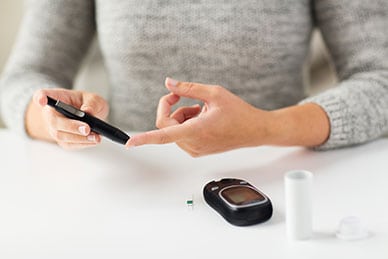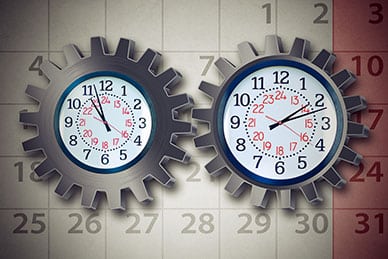Westerners are living longer lives than ever. However, we are living sicker lives as well. Many people struggle with chronic illness and disorders that affect their daily lives in a variety of ways. Sadly, our golden years are often spent in hospitals and doctor’s offices. Researchers now believe that maintaining a healthy balance of intestinal flora (bacteria in your digestive tract) may be key to improving overall health throughout our lifespans.
Your Gut Microbiome and Your Health
The microorganisms that live in your GI tract as well as other parts of your body are collectively known as your microbiome. We have long known that the microbiome is an important part of health. For instance, we cannot absorb vitamin K without the help of certain beneficial bacteria that reside in our digestive tract. However, scientists now realize that the health effects of your microbiome extend far beyond digestion and absorption. In fact, more and more research indicates that keeping your natural flora balanced with probiotics (supplements that help replenish the “good” bacteria in your digestive tract) may be more important than taking a daily vitamin.
How can probiotics affect health? Sometimes our microbiome, like any ecosystem, can get off-balance. As a result of stress, diet and other external factors, we can end up with too many of a certain kind of bacteria or too few of another. Maintaining the right balance is important, and probiotics are intended to support that balance.
The Known Health Benefits of Probiotics
 Probiotics have been shown to support good health in several recent studies. For instance, dental cavities have been linked to an imbalance in bacteria in the mouth and pharynx. Research shows that taking a probiotic containing a less-destructive bacteria called streptococcus A12 may crowd out the bacteria that cause plaque biofilms that are destructive to teeth.
Probiotics have been shown to support good health in several recent studies. For instance, dental cavities have been linked to an imbalance in bacteria in the mouth and pharynx. Research shows that taking a probiotic containing a less-destructive bacteria called streptococcus A12 may crowd out the bacteria that cause plaque biofilms that are destructive to teeth.
Metabolic syndrome is common in the modern world, with researchers and doctors alike desperate to find an effective treatment. New research suggests that this syndrome, which includes diverse range of disorders from type 2 diabetes to polycystic ovarian syndrome, may also be linked to gut health. Mice who have the underlying hormonal disruption seen in PCOS were found to have changes in their microbiome, including less genetic diversity in their gut bacteria. Taking a probiotic supplement may help many people with metabolic syndrome to lead healthier lives.
Inflammation and Gut Health
How can probiotics affect health in such a variety of ways? The jury is still out, but inflammation appears to be part of the answer. A recent study found that mice given probiotics did not lose as much bone density after menopause. Researchers suggest that maintaining the right gut bacteria balance may reduce the systemic inflammation that contributes to bone loss, which is a common health issue in postmenopausal women.
 Modern lives tend to be stressful, instigating the release of cortisol and other stress hormones that can lead to inflammation. The link between inflammation and our microbiome may be part of the explanation for the many healthy benefits of probiotics. In one study, when medical students were given probiotics before a test, they had lower levels of salivary cortisol and reported less anxiety. The benefits of probiotics may soon be tested on female astronauts, who suffer a disproportionate amount of serious infections while in space and negative health effects once back on earth. Researchers believe that the sterile atmosphere of space may be part of the problem, as healthy bacterial levels in the body begin to fall and pathogenic inflammatory bacteria take over. A simple probiotic supplement may keep the flora of female astronauts healthy and support good health in a variety of ways.
Modern lives tend to be stressful, instigating the release of cortisol and other stress hormones that can lead to inflammation. The link between inflammation and our microbiome may be part of the explanation for the many healthy benefits of probiotics. In one study, when medical students were given probiotics before a test, they had lower levels of salivary cortisol and reported less anxiety. The benefits of probiotics may soon be tested on female astronauts, who suffer a disproportionate amount of serious infections while in space and negative health effects once back on earth. Researchers believe that the sterile atmosphere of space may be part of the problem, as healthy bacterial levels in the body begin to fall and pathogenic inflammatory bacteria take over. A simple probiotic supplement may keep the flora of female astronauts healthy and support good health in a variety of ways.
The Circadian Rhythm and Your Natural Flora
Another way that your intestinal flora may be affecting your health is through the microbiome’s effect on the circadian rhythm. Mice that have a mutation in certain circadian genes show increased inflammation in their gastrointestinal tracts, more intestinal permeability to harmful substances and poorer overall health. They also have a different balance of bacteria than mice without the mutation, suggesting that the circadian rhythm is somehow involved in microflora balance. The presence of good bacteria in a healthy balance is linked to both a healthy circadian rhythm and lower risk of a variety of common diseases.
Medical research is identifying new links between the gut, the brain, and our overall well-being. It appears that the human body evolved to live symbiotically with a variety of microorganisms. Maintaining this healthy balance by taking probiotics is an important way to support good health.
 Evidence suggests that not only does diet affect sleep duration, but that sleep can affect diet as well.
Evidence suggests that not only does diet affect sleep duration, but that sleep can affect diet as well.  What does this mean for human health? First, caffeine may be used in the future to modify the activity of circadian clocks. This could help in the treatment of
What does this mean for human health? First, caffeine may be used in the future to modify the activity of circadian clocks. This could help in the treatment of  Type 2 diabetes has been assumed to have a genetic component because it tends to run in families. Even when lifestyle factors are taken out of the equation, some people are simply at higher risk. Lifestyle factors also play an important role, but the influence of genes cannot be discounted. Some people are genetically primed to develop insulin resistance and other diseases of glucose metabolism.
Type 2 diabetes has been assumed to have a genetic component because it tends to run in families. Even when lifestyle factors are taken out of the equation, some people are simply at higher risk. Lifestyle factors also play an important role, but the influence of genes cannot be discounted. Some people are genetically primed to develop insulin resistance and other diseases of glucose metabolism. Grapes have always been a healthy snack, but this research suggests that they offer more health benefits than the average fruit. There have been
Grapes have always been a healthy snack, but this research suggests that they offer more health benefits than the average fruit. There have been 